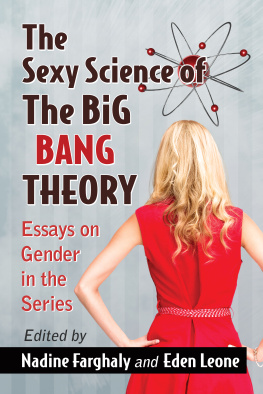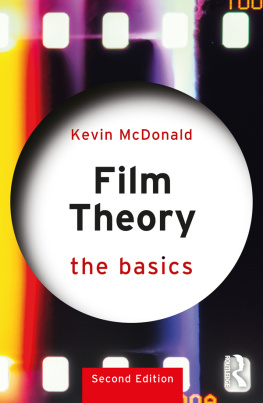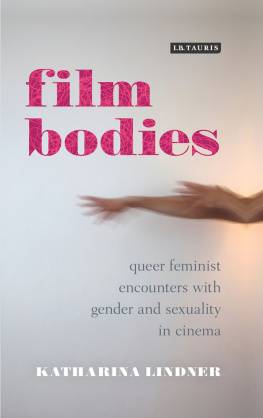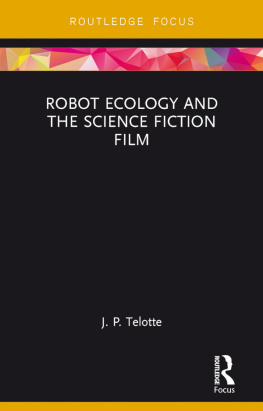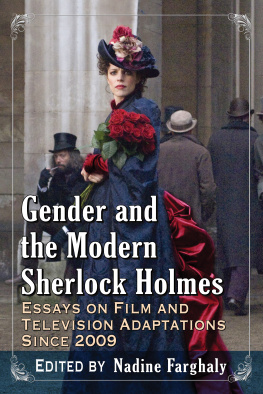De Lauretis - Technologies of gender: essays on theory, film, and fiction
Here you can read online De Lauretis - Technologies of gender: essays on theory, film, and fiction full text of the book (entire story) in english for free. Download pdf and epub, get meaning, cover and reviews about this ebook. City: Bloomington, year: 2001, publisher: Indiana University Press, genre: Politics. Description of the work, (preface) as well as reviews are available. Best literature library LitArk.com created for fans of good reading and offers a wide selection of genres:
Romance novel
Science fiction
Adventure
Detective
Science
History
Home and family
Prose
Art
Politics
Computer
Non-fiction
Religion
Business
Children
Humor
Choose a favorite category and find really read worthwhile books. Enjoy immersion in the world of imagination, feel the emotions of the characters or learn something new for yourself, make an fascinating discovery.

- Book:Technologies of gender: essays on theory, film, and fiction
- Author:
- Publisher:Indiana University Press
- Genre:
- Year:2001
- City:Bloomington
- Rating:3 / 5
- Favourites:Add to favourites
- Your mark:
- 60
- 1
- 2
- 3
- 4
- 5
Technologies of gender: essays on theory, film, and fiction: summary, description and annotation
We offer to read an annotation, description, summary or preface (depends on what the author of the book "Technologies of gender: essays on theory, film, and fiction" wrote himself). If you haven't found the necessary information about the book — write in the comments, we will try to find it.
De Lauretis: author's other books
Who wrote Technologies of gender: essays on theory, film, and fiction? Find out the surname, the name of the author of the book and a list of all author's works by series.
Technologies of gender: essays on theory, film, and fiction — read online for free the complete book (whole text) full work
Below is the text of the book, divided by pages. System saving the place of the last page read, allows you to conveniently read the book "Technologies of gender: essays on theory, film, and fiction" online for free, without having to search again every time where you left off. Put a bookmark, and you can go to the page where you finished reading at any time.
Font size:
Interval:
Bookmark:
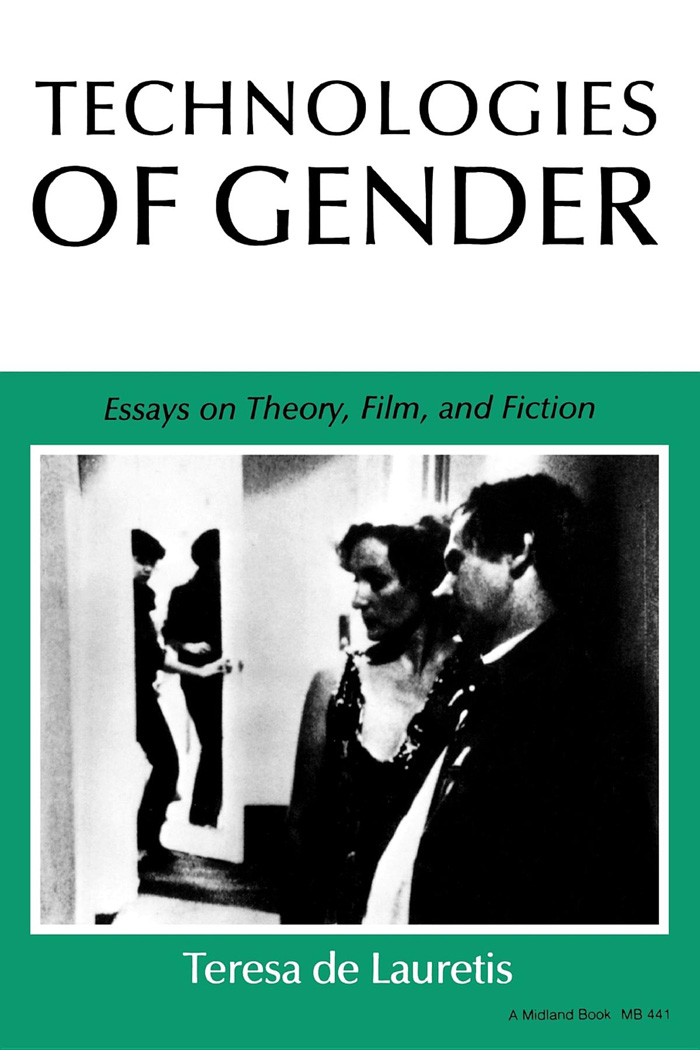
TECHNOLOGIES OF GENDER
Theories of Representation and Difference
General Editor: Teresa de Lauretis
TECHNOLOGIES OF GENDER

Essays on Theory, Film, and Fiction
BY
TERESA DE LAURETIS
INDIANA UNIVERSITY PRESS
Bloomington and Indianapolis
This book is a publication of
Indiana University Press
601 North Morton Street
Bloomington, IN 47404-3797 USA
http://iupress.indiana.edu
Telephone orders 800-842-6796
Fax orders 812-855-7931
Orders by e-mail
1987 by Teresa de Lauretis
All rights reserved
No part of this book may be reproduced or utilized in any form or by any means, electronic or mechanical, including photocopying and recording, or by any information storage and retrieval system, without permission in writing from the publisher. The Association of American University Presses Resolution on Permissions constitutes the only exception to this prohibition.
The paper used in this publication meets the minimum requirements of American National Standard for Information SciencesPermanence of Paper for Printed Library Materials, ANSI Z39.48-1984.
Manufactured in the United States of America
Library of Congress Cataloging-in-Publication Data
De Lauretis, Teresa.
Technologies of gender.
(Theories of representation and difference)
Includes index.
1. Feminism and literature. 2. Feminism and motion pictures. 3. Feminism. I. Title. II. Series.
PN56.F46D4 1987 801'.41 86-46317
ISBN 0-253-35853-1
ISBN 0-253-20441-0 (pbk.)
6 7 8 9 10 05 04 03 02 01
For her who rides the chariot of the sun
The essays here collected, except one, were written between 1983 and 1986. Like the book I wrote immediately before them, Alice Doesnt: Feminism, Semiotics, Cinema (1984), and which to a large extent constitutes their theoretical framework, these essays also carry on an argument by means of textual readings. In some, a novel or a film is read through theory, that is, by taking a particular issue or assumption in theoretical discourse as magnifying glass in order to refocus the reading around questions of gender representation. In other essays, the reading of a fictional, filmic, or critical text provides the occasion to articulate a theoretical problem or to engage with a current critical debate. All but the first essay were originally written as lectures, conference papers, or special-issue contributions, and because the context of address is a very important aspect of any piece of critical writing, a short note at the head of each essay will identify the occasion of its writing.
While all of the essays are centrally concerned with gender, the first one, The Technology of Gender, specifically poses the question of how to theorize gender beyond the limits of sexual difference and the constraints that such a notion has come to impose on feminist critical thought. The essay takes its title and its conceptual premise from Foucaults theory of sexuality as a technology of sex and proposes that gender, too, both as representation and as self-representation, is the product of various social technologies, such as cinema, as well as institutional discourses, epistemologies, and critical practices; by that I mean not only academic criticism, but more broadly social and cultural practices. Going past Foucault, whose critique of the technology of sex does not take into account its differential solicitation of male and female subjects, or the conflicting investments of men and women in the discourses and practices of sexuality, the essay then considers the potential of Althussers theory of ideological interpellation with regard to an understanding of gender as (self-representation. It then argues that contemporary work in feminist theory goes further in defining the female-gendered subject as one that is at once inside and outside the ideology of gender: the female subject of feminism is one constructed across a multiplicity of discourses, positions, and meanings, which are often in conflict with one another and inherently (historically) contradictory. A feminist theory of gender, in other words, points to a conception of the subject as multiple, rather than divided or unified, and as excessive or heteronomous vis--vis the state ideological apparati and the sociocultural technologies of gender.
As the slight variance between its title and the volumes title is intended to suggest, the first essay is not meant to be an introduction to the volume as such, although it was written after the others and thus is chronologically the last, or the most recent; but it does not attempt to bring together the diverse concerns of the essays that follow it into a single critical argument. The volume is a collection of distinct, if related, essays. I feel, however, that The Technology of Gender is properly placed as the lead essay of the volume because it does lay out the inclusive parameters and the critical frame of reference for the exploration of gender-related questions throughout the book. The inclusion of one essay written several years earlier than the others is motivated by its compatibility with that critical frame of reference, as well as by its direct relevance to the topic of the volume.
A few words on the sequential ordering of the essays may be useful, since it is neither chronological nor strictly adherent to the three generic areas listed in the subtitle. The second essay, like the first, engages and rewrites theory: The Violence of Rhetoric confronts structuralist and poststructuralist theory (Lvi-Strauss to Foucault and Derrida) with feminist readings of it (e.g., Spivak on Derrida on Nietzsche), as well as feminist work in social science (e.g., Breines and Gordon on family violence) and rhetorical analyses of scientific discourse (e.g., Kellers critique of the genderization of science). Essays 3 and 4 offer close textual readings of two contemporary novels, Umberto Ecos best-seller The Name of the Rose and Italo Calvinos If on a winters night a traveler, readings which engage the texts to test the intriguing allegations of a possible love affair between feminism and postmodernism.
The essay that follows is anomalous in both topical and tropical location. First published in 1978 by a feminist collectives non-scholarly publication on art and politics, Gramsci Notwithstanding, or, The Left Hand of History is about neither theory or fiction, nor film. It is, and was written as, a presentation, or a record, of a specific textual practice in the Italian womens movement (a book based on unpublished womens letters, an experimental theatre performance based on the book, and the documentation of the theatrical production itself, also published in the book), and an instance of textual practice as feminist intervention in/against cultural hegemony. For this reason I have placed the essay after Calvino and the Amazons, almost as a response to Calvinos textas another feminist rereading next to my own, or, better, as a feminist rewriting of cultural historyand before the last two essays, which are also about feminist interventions in cultural hegemony through the practice, this time, of womens cinema. Moreover, because of its somewhat heterogeneous or liminal character in this collection, the fifth essay serves well as a divider between the previous four, which engage theory and fiction, and the last three, which deal primarily with film.
Font size:
Interval:
Bookmark:
Similar books «Technologies of gender: essays on theory, film, and fiction»
Look at similar books to Technologies of gender: essays on theory, film, and fiction. We have selected literature similar in name and meaning in the hope of providing readers with more options to find new, interesting, not yet read works.
Discussion, reviews of the book Technologies of gender: essays on theory, film, and fiction and just readers' own opinions. Leave your comments, write what you think about the work, its meaning or the main characters. Specify what exactly you liked and what you didn't like, and why you think so.

